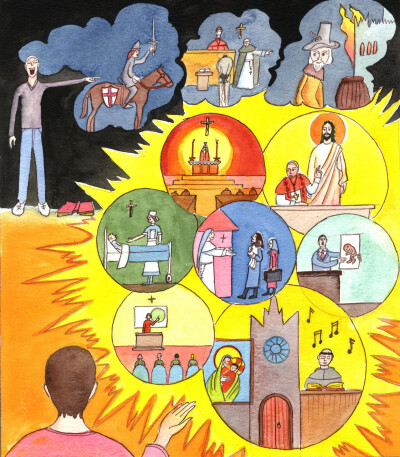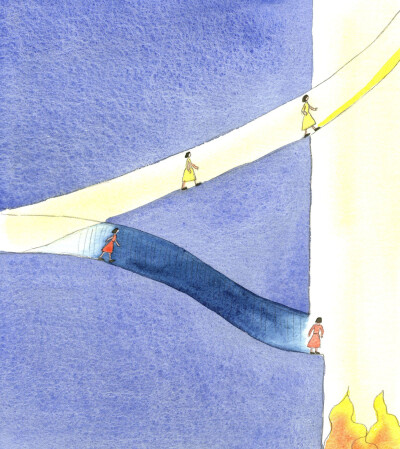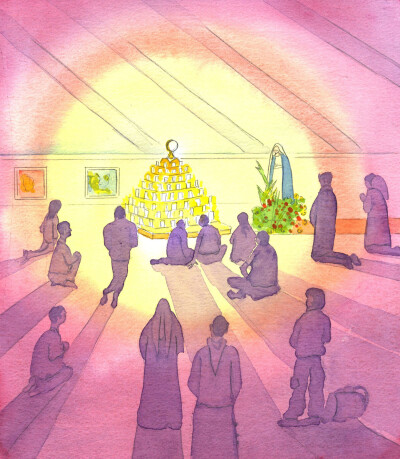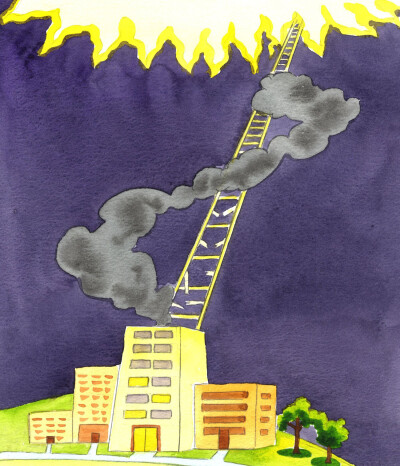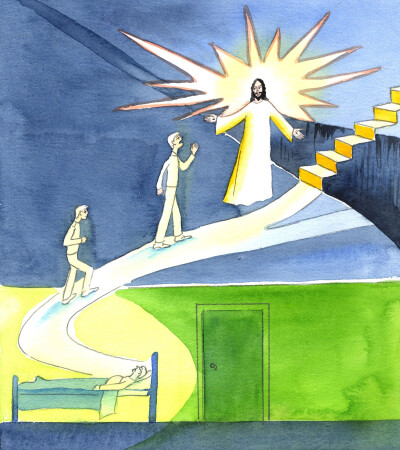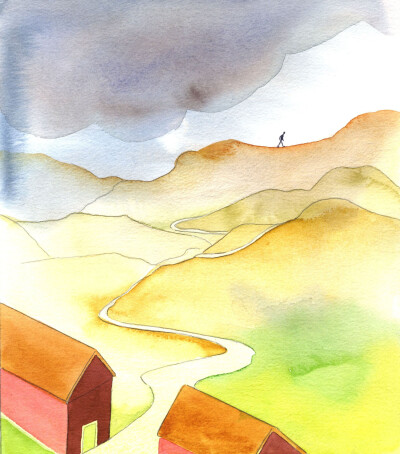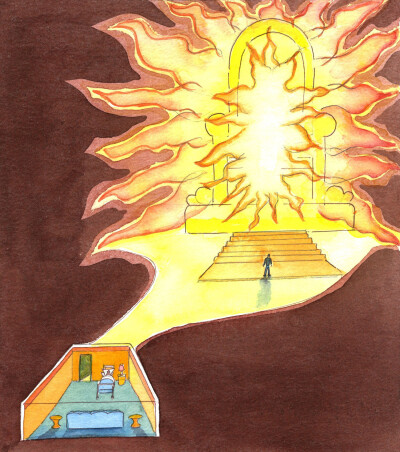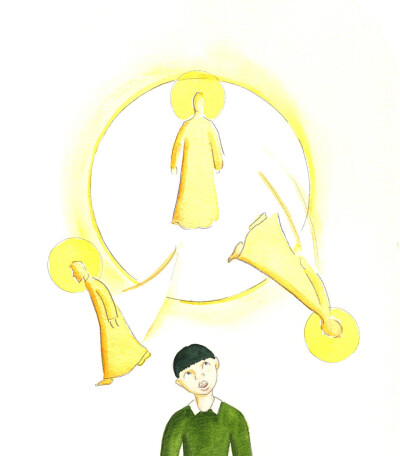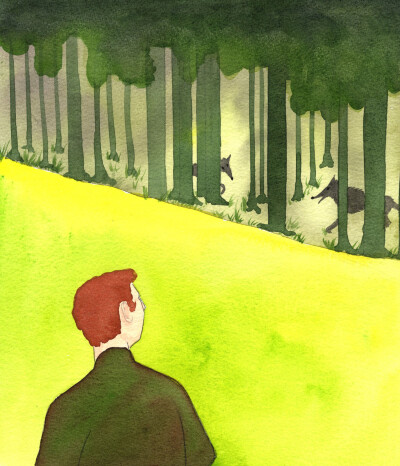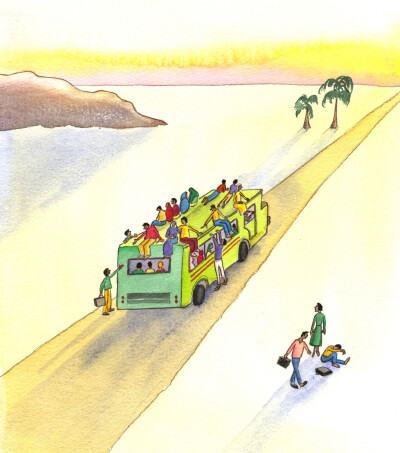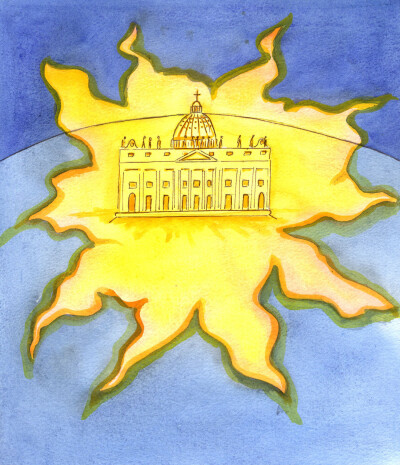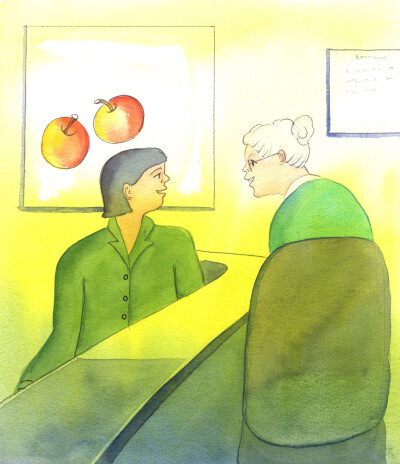Search Page
Showing 21 - 40 of 57
People who use Mass as an opportunity to make protests against the teaching which Christ gives us through His Church make a sacrilegious interruption to the Church's most sacred rites. Christ suffered death on the Cross - a death remembered and re-presented at Mass - for our sins, including the very sins those people promote today.
It is true that groups of Christians outside the visible unity of the Catholic Church join in Christ's saving work by baptising their members. But it is tragic that those young Christians are often taught mistaken things about faith and morals, and so encouraged to sin - even if their instructors thought they were right, in approving of contraception, divorce and remarriage, even abortion and other evils.
When people who have never read a serious book about Catholicism complain about episodes of Catholic history and hate the Church, it is best not to argue about history but to say: 'Look at the Church, as she is': the unique unity in Faith, government and worship, unique in handing on the body of truths, in helping the sick and needy, defending lives, including the unborn, inspiring artists, architects, composers, promoting education, all with confidence in God. Outside the Catholic Church people do not have such clear teaching. It is the one Church founded by Jesus Christ, Who still guides her, in union with the Father, and the Holy Spirit.
The path of love for Christ, and obedience, leads straight towards Heaven, for the faithful. Those Catholics who are disobedient or faithless take a dark, downward path. There can be an opportunity, before death, for repentance, at which the soul can be drawn up towards Heaven's light instead of falling down into Hell.
When we are with fellow Catholics on a retreat or a pilgrimage, we have a great opportunity from the Lord - Present amongst us in the Blessed Sacrament - to encourage one another in the Faith, and to declare our faith in Christ and in His Church - although not interrupting people at prayer.
When we are with fellow Catholics on a retreat or a pilgrimage, we have a great opportunity from the Lord - Present amongst us in the Blessed Sacrament - to encourage one another in the Faith, and to declare our faith in Christ and in His Church - although not interrupting people at prayer.
Where there is dissent from Church teaching in a group or community which is meant to promote Church teaching and to support the Church, it is as if the ladder to Heaven which ascends from such a place is partly obscured by the smoke of disbelief, and has broken rungs, which delay the faithful on their journey.
Even when people persist in disbelief or grave sin, there is hope that a person can be saved - provided he repents before he dies. Christ continues, to the last moment of such a person's life, to encourage him to turn to Him. If someone has never heard of Christ, Christ will even appear to him as that person dies, to give him the opportunity to repent and believe - or else to fall away forever.
In Mediaeval times, people were taught the truth about the Mass, the central act of our religion, and the greatest means of praising God - through His Son, and His Son's Holy Sacrifice, re-presented in the presence of the Saints, the Holy Souls and the Angels. What is important are prayer, adoration, and the knowledge that we join in the worship of Heaven. (It is because most children are taught only that the Mass is a community meal, that there are so many images given, through Radiant Light, of every aspect of the Holy Sacrifice. The Lord wants every effort made to teach the truth about these Holy Mysteries.)
When a person risks falling into serious sin, or does engage in it, it is as if he is isolating himself from the community of the faithful. Even if he then avoids sin, but remains isolated, listless, scarcely bothering to pray, and discontented, he is not out of danger - like a man strolling on the moors who avoids deep crevasses but might die of exposure if he is there for too long.
If they do not repent before they die, those politicians who have passed laws which condemn unborn children to death will one day find themselves, after death, in front of a throne greater than any earthly throne, and a judge more awesome than any earthly judge. Wise politicians will repent, in earthly life, while they still have an opportunity to change.
When Christ washed the feet of His disciples at the Last Supper, He set us an example; and He is pleased, and grateful, whenever He sees us show out practical, compassionate love in our care of the needy: whether the members of our own families in everyday life, or people in our wider community,
An orthodox and fervent form of catechesis is badly needed. Things began to go wrong thirty years ago when many tabernacles were moved to unsuitable, make-shift chapels unworthy of our Divine Saviour. Christ's Real Presence is ignored or forgotten. Children were taught little about His Presence. Attention was paid, frequently, more to the community than to almighty God.
It is difficult to describe a sublime, holy Mystery. Some people describe the Blessed Trinity as a Community, but stress the unity of the Godhead. Others describe God as 'a family'. This is unwise, in that it can lead children to imagine three Persons who are not merely distinct but separate from One Another, each going His own way to do His own tasks, whereas the truth is that the Divine Persons act together, no matter what appropriation we attribute to One or the Other.
We need to be on our guard, always. Just as wolves wait at the edge of the wood, prowling around, ready to leap upon any weak creature nearby, so, the demons seize every opportunity to cause confusion in good people, mislead good minds - and also use them to lead others astray, intellectually as well as morally. In Christ, we can find safety.
The Eucharist, for Catholics, is a sign of unity, not a step to it. A faithful Catholic cannot take part in ill-defined, ambiguously-worded ecumenical events that confuse people about truth, and yet which are meant to increase communion between Christians. The Most Holy Eucharist, treasured by Catholics, is not to be confused with a sharing of merely bread and wine, as merely a social event.
The Church is like a bus which takes grateful people through a desert. People on the bus have practical help, a little community, communal prayer, and hope of a safe arrival, whereas people who refuse to climb on, or who decide to leap off, will be making a perilous journey on foot, with no guide. What counts is being on board, even if we are uncomfortable or uncertain of our destination. The alternative is death. The 'bus' takes us towards Heaven.
Christ asks all the members of His Church to love one another with a holy love. If we cannot do that, He asks, how can we possibly act with authentic, holy love towards people outside the Church, many of whom oppose our teachings, our plans, and our participation in the life of our community or country?
We know that Christ took flesh from the Blessed Virgin, and is both God and man. We also know that He is bodily Present with us, in a sacramental manner, in the Holy Eucharist. Yet He is never separated from the Father and the Holy Spirit: in the unity of the Blessed Trinity.
If we share our faith we ought not to complicate matters. Without being over-eager, or tactless, we ought to seize every suitable opportunity to share the Good News about our Faith: about the existence of God, the one, true God who has come down to share our lives, in the Person of His Son, Jesus Christ. Everyone can have the power, from Him, through His Church, to conquer sin and misery, to do good, and to look forward to Heaven.
Showing 21 - 40 of 57


